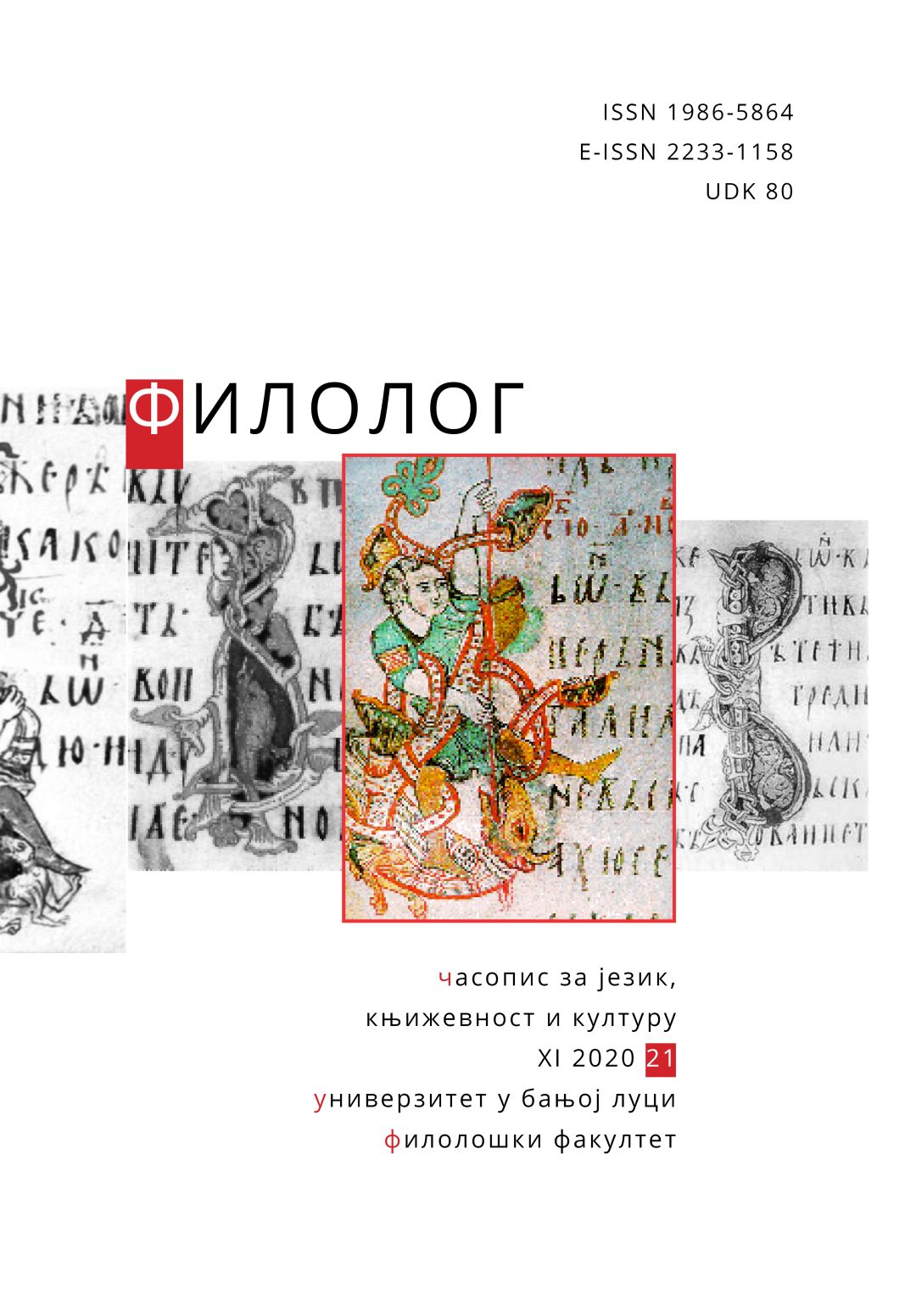Приповијетке Предрага Степановића (љубавне)
Short Stories of Predrag Stepanović (Romantic Ones)
Author(s): Rada B. StanarevićSubject(s): Language and Literature Studies, Psychology, Customs / Folklore, Studies of Literature, Comparative Study of Literature, Serbian Literature, Cultural Anthropology / Ethnology, Philology, Theory of Literature
Published by: Филолошки факултет Универзитета у Бањој Луци
Keywords: unfortunate love; mentally deranged persons; dragon; ‘wicked’ eyes; destiny words;
Summary/Abstract: In this paper, the author deals with Predrag Stepanović’s short stories, featuring romantic sentiments written in the period of 1965-2005. They discuss autobiographical stories of Nepovrat and Pobijte plave kanarince, taking place in the present day, alongside with an early novel by the same author, Prepolovljeni, since all three texts highlight unfortunate young love. Unlike these three, whose plot is unrelated to the writer’s home country, the following two short stories, Ludačka romansa and Arhetipski krimić, feature past events in Stepanović’s home town of Mohacs (Hungary). This time, however, the writer’s persona is not in the spotlight, it is merely just one of the fictitious narrators, rendering these short stories as not purely autobiographical, although the writer appears as the first-person narrator. Instead, the protagonists in the story of Ludačka romansa are two mentally deranged characters, namely Luda Mara and Kolesar, while the story of Arhetipski krimić is centred around Marika, a famous beauty from ancient times, best known for her ‘wicked’ eyes. In oral tradition, she is thought to be a dragon’s daughter. Using this legend as a starting point in his own story, Stepanović, with great skill, penetrates deeply into the souls and actions of his characters, which results in a series of all-time and irrational archetypal motifs, such as a dragon’s love, witchcraft, and a murder caused by a magic spell. The last of the short stories discussed, with the somewhat mysterious title of Usudne reči, is embedded into the WWII milieu. On the other hand, it is a documentary. It is a known fact that there was the Sarvar concentration camp in old Hungary intended for Serbs (mainly for women, children, and the elderly). At the same time, this is a destiny-revealing story. The plot within a plot depicts a young Serbian woman named Duša and her two sons, who are prisoners in a kamp for 'chetniks' ('Csetniktábor'), and a young married couple from Hungary with a baby girl who hire Duša as househelp. When Duša loses both her sons due to a typhoid epidemic in the camp, she transfers all her love to the baby girl, she sings and talks to her in Serbian with such warmth that her words determine the girl's destiny. The main plot features a mother of a grown-up young woman that tells this story, with the punchline of the story presenting us with the fact that her daughter married the only Serb she had ever met.
Journal: Филолог – часопис за језик, књижевност и културу
- Issue Year: 2020
- Issue No: 21
- Page Range: 261-283
- Page Count: 23
- Language: Serbian

